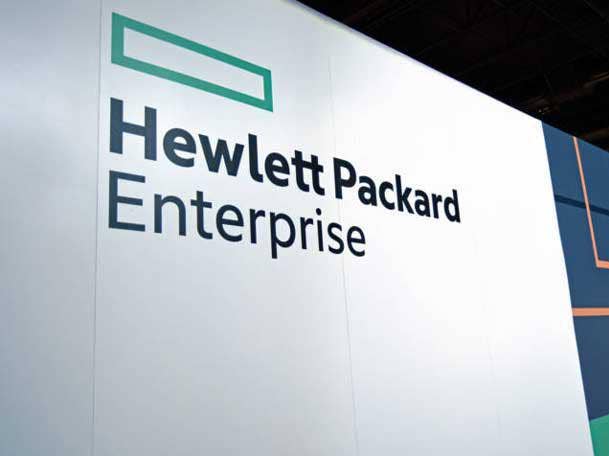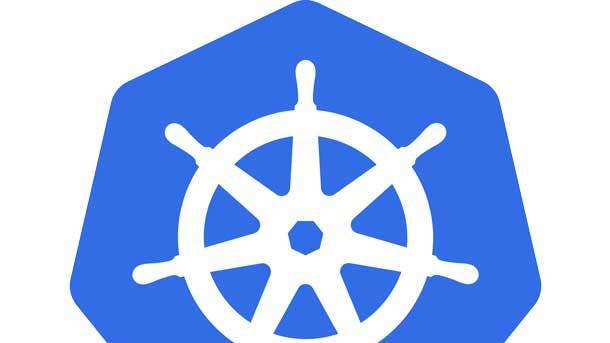5 Things You Need To Know About HPE’s Kubernetes Container Platform Strategy
HPE Monday said it has released a preview beta version of its new ‘100 percent Kubernetes’-based HPE Container Platform. Here are five things you need to know about the new container platform.

A ‘Huge” Opportunity For Partners To Modernize Applications
Hewlett Packard Enterprise’s new Kubernetes-based HPE Container Platform represents a “huge opportunity” for partners to help modernize legacy mission critical applications, said HPE Global Vice President of Marketing Paul Miller.
Miller said he sees the HPE Container Platform accelerating the digital transformation of customers that have up until now struggled to modernize the 70 percent of mission critical corporate applications that have yet to move to the cloud.
Case in point, said Miller, a financial services firm he recently met with that has 3,000 applications with only 50 it estimated it could bring to the cloud in a three-year time frame because of compliance and data gravity issues.
With the HPE Container Platform partners now have the tools to modernize all of those legacy applications from such a customer with a low cost, low complexity platform, said Miller.
“There is a huge opportunity for partners to come in and start having an app transformation conversation with consulting up front to move to a container first environment to accelerate digital transformation,” he said.”Partners need to get customers to understand the value of a 100 percent Kubernetes foundation.”
Miller said partners should begin to get educated on the HPE Container Platform and get ready to sell and support the product when it is released for general availability next March.

A Full 100 Percent Kubernetes Container Commitment
The new HPE Container Platform – which is now in public beta and will be generally available on March 2- is a 100 percent Kubernetes-based platform.
“What we are doing with our version of containers is taking 100 percent Kubernetes open source so customers can use all the tools, scripts, APIs and workflows they have (already) developed,” said Miller.
The HPE Kubernetes based Container Platform provides a modern unified container platform that spans both traditional on premise and cloud native application workloads with what HPE is calling a “One Click” deployment model.
The HPE Container Platform, in effect, opens the door for customers to “modernize their non-cloud native monolithic apps without rearchitecting them,” said Miller. “This really elevates the cloud experience for developers who felt trapped with old tools and old processes.”

HPE Takes Aim At VMware Licensing Costs With ‘Bare Metal’ Support
HPE is taking direct aim at VMware with the ability to run the HPE Container Platform on ‘bare metal’ servers- bypassing VMware and other virtualization environments.
“If customers want to use a VM virtual machine architecture to orchestrate or run in a public cloud instance we support those as well, but our goal is to take out costs, take out complexity by enabling customers to run on bare metal,” said Miller. “That not only reduces costs but enables higher performance and higher availability.”
That said, Miller stressed HPE is offering customers choice with the ability to also run the HPE Container Environment in virtualized environments like VMware or in a public cloud.
“We're the only ones really enabling that so you can run in a multi-tenant environment plus run different versions of Kuberntes within the same environment,” he said. “A lot of companies are saying – ‘Hey its’s great as long as you keep all the lifecycle management on a single version of Kubernetes.”

The BlueData -MapR Kubernetes Advantage
The central nervous system of the HPE Container platform is the software HPE acquired when it acquired artificial intelligence/big data platform provider BlueData.
The BlueData software is, in fact, the intelligent control plane for the HPE Container platform. That BlueData software functionality provides the ability to quickly and easily deploy the container platform with proven enterprise grade security, said Miller.“We have made the container experience a lot simpler,” he said.
At the same time, the enterprise grade security that BlueData provides is unmatched, said Miller. “BlueData runs in some of the biggest financial houses and healthcare organizations that are heavily regulated with an enterprise grade system,” he said.
HPE’s acquisition of MapR this summer, meanwhile, provides a persistent data store that enables legacy Java or .Net applications to be used in the HPE Container Platform.
All in all, BlueData and MapR are empowering developers to “release code faster in a secure, enterprise grade container platform,” said Miller.

Partners Give HPE Container Platform Rave Reviews
Partners say the new HPE Container Platform represents breakthrough innovation from the intelligent edge to cloud powerhouse that gives HPE significant advantages over competitors.
“Tying in BlueData and MapR is definitely a differentiator for HPE,” said Mike Thompson, CEO of Groupware Technology, one of the top cloud solution providers in the country “It’s a unique solution in the marketplace that is going to help our customers accelerate the transformation of their business.”
Thompson said his AI technology team has been impressed by HPE’s artificial intelligence muscle with BlueData and the analytical capabilities of MapR. “There is a lot we are going to do with HPE around that,” he said.
The bare metal capability of the HPE Container Platform is also a significant advantage for HPE, said Thompson. “We’re seeing more interest around deploying these technologies on bare metal, directionally HPE is hitting this right on,” he said. “You still have to have the capabilities to move to virtual machines and VMs, but the capability to replicate that on bare metal is a big benefit for sure.”
Groupware expects its Kubernetes business to at least double over the next year. “There is definitely a lot of interest and the adoption rate continues to accelerate,” he said. “We’re moving workloads and applications, supporting them in different locations and even bringing them back in house for a hybrid cloud model.”
Groupware is working on one Kubernetes deployment that is going to save the customer hundreds of thousands of dollars in IT costs, said Thompson.

HPE Continues To Support Google Kubernetes Anthos Container Solution
HPE – which is committed to offering an “open ecosystem”- is continuing to invest in its HPE GreenLake Google Cloud Anthos offering which allows customers to run applications as a service in a Google Kubernetes Engine environment on premise, said Miller.
“We’re still going to be supporting and continuing to invest in Anthos,” said Miller. “The Anthos solution is really designed for customers that have standardized on a Google platform. It is really optimized for a customer that wants a Google portal as their main portal for development.”
In contrast, the HPE Container Platform is aimed at supporting on premise and multi-cloud environments with support for bare metal and VMware virtualization, said Miller.
Ultimately the HPE Container Platform is providing a breakthrough opportunity to modernize legacy applications, said Miller.
“The combination of what we are doing with this (HPE Container) platform, with our workload optimized systems, with technology we are partnering with like Pensando, with our as a service push, all this is adding up to a very compelling value proposition for customers who now can now look at their existing (IT) estate and really transform the 70 percent of their applications that have been kind of stuck.”